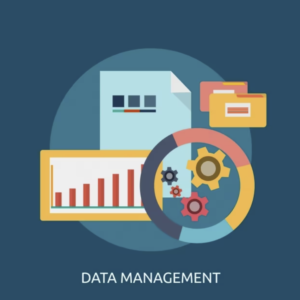In today’s digital age, data and analytics have become the lifeblood of businesses across industries. They fuel informed decision-making, enhance customer experiences, and drive innovation. However, with great power comes great responsibility. Mishandling data or overlooking analytics risks can lead to costly mistakes, damage to your brand’s reputation, and even legal repercussions. That’s why it’s crucial for businesses to proactively manage data and analytics risk. In this blog post, we’ll delve into why and how managing data and analytics risk can significantly improve business outcomes.

Understanding Data and Analytics Risk
Before we explore how to manage data and analytics risk, let’s clarify what this term encompasses. Data and analytics risk refers to the potential negative impacts on your organization arising from issues related to data quality, data privacy, security breaches, algorithm bias, and regulatory compliance, among others. Failing to address these risks can undermine the value and reliability of your data-driven initiatives.
The Importance of Managing Data and Analytics Risk
- Protecting Reputation: Data breaches and privacy violations can severely damage your brand’s reputation. Customers, partners, and stakeholders trust you with their data. Failing to safeguard it can erode that trust, potentially leading to customer attrition and loss of business.
- Avoiding Legal Consequences: Non-compliance with data protection laws and regulations can result in hefty fines and legal actions. Effective risk management ensures that your organization adheres to relevant laws, reducing the likelihood of legal trouble.
- Maximizing Data Value: Poor data quality, biases in analytics models, or inaccurate insights can lead to misguided decisions. When data is reliable and risks are mitigated, you can confidently leverage data to drive strategic initiatives, leading to better business outcomes.
- Strengthening Cybersecurity: Data breaches can be costly and disruptive. Managing data risk involves implementing robust cybersecurity measures to protect sensitive information, reducing the chances of a breach.
Also Read: Unlocking Success: Top 4 Reasons Why Businesses Need Location Analytics
Strategies for Effective Data and Analytics Risk Management
Now that we understand why managing data and analytics risk is crucial, let’s explore strategies to achieve this:
- Risk Assessment: Begin by identifying potential risks specific to your data and analytics operations. Conduct thorough risk assessments to understand vulnerabilities and their potential impact.
- Data Governance: Implement a robust data governance framework to ensure data quality, accuracy, and compliance with regulations. Establish data ownership, data stewardship, and data lineage processes.
- Privacy and Compliance: Stay updated with data protection laws and regulations relevant to your industry. Develop and maintain policies and procedures to ensure compliance with these regulations.
- Security Measures: Implement stringent cybersecurity measures, including encryption, access controls, and regular security audits. Train employees on security best practices to prevent breaches.
- Bias Mitigation: Scrutinize algorithms for bias and take steps to mitigate it. Ensure that analytics models are fair and equitable to prevent unintended consequences.
- Monitoring and Reporting: Continuously monitor data and analytics processes for anomalies or deviations. Implement reporting mechanisms to promptly address any issues that arise.
- Data Incident Response Plan: Develop a well-defined incident response plan to handle data breaches or analytics failures. Timely and effective responses can minimize damage.
Also Read: Navigating Your Career: How to Become a Market Research Analyst in India
Conclusion
In the data-driven era, managing data and analytics risk is not just a good practice; it’s a business imperative. By proactively identifying and mitigating risks related to data quality, privacy, security, and compliance, organizations can protect their reputation, avoid legal consequences, and maximize the value of their data initiatives. Remember, effective risk management is an ongoing process, and staying vigilant in the face of evolving risks is key to achieving better business outcomes in the long run.


